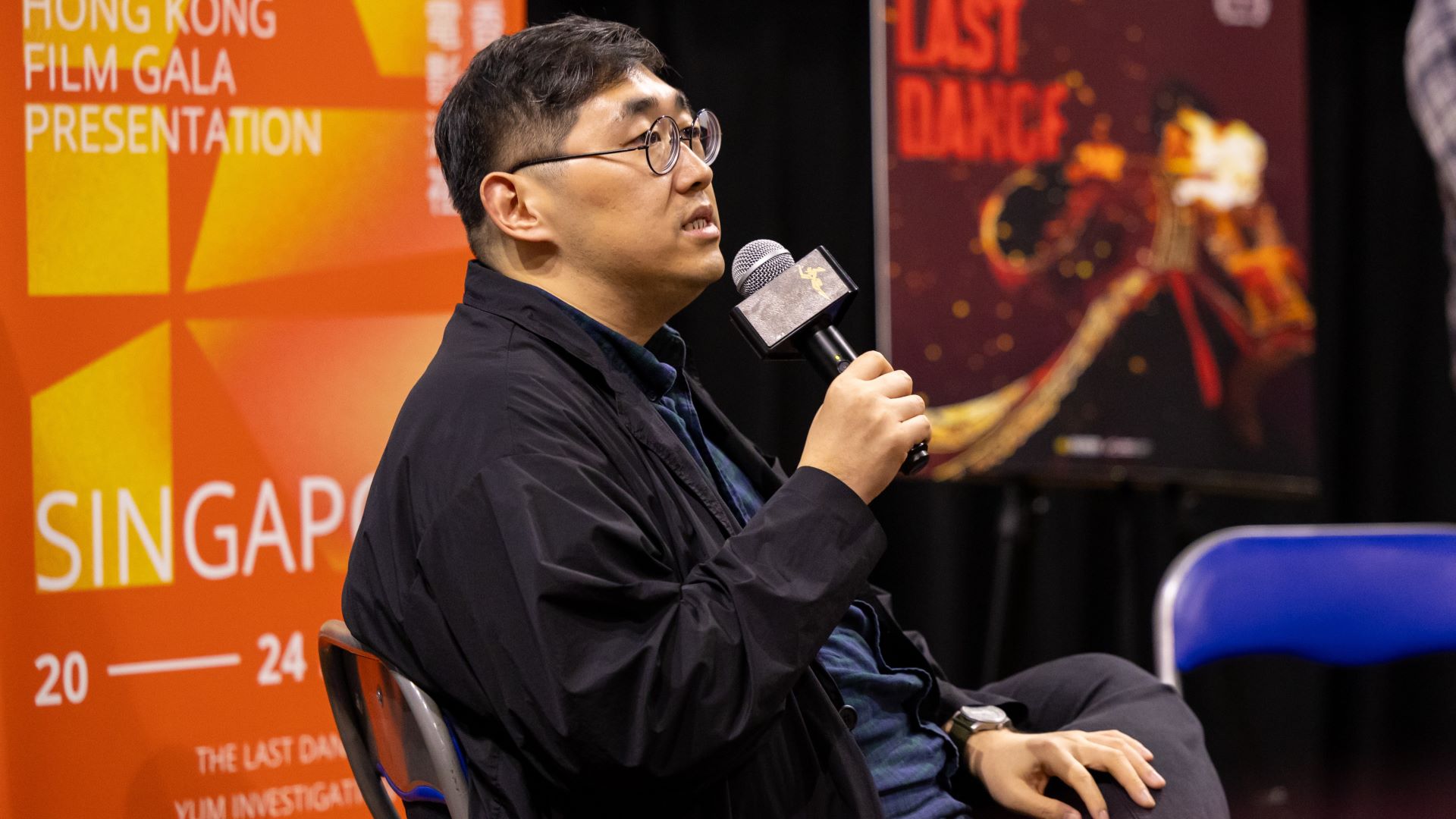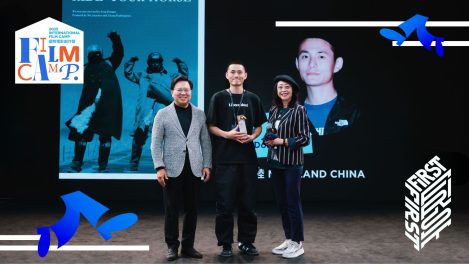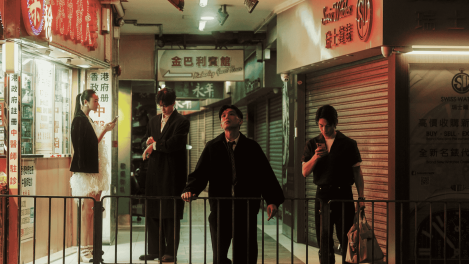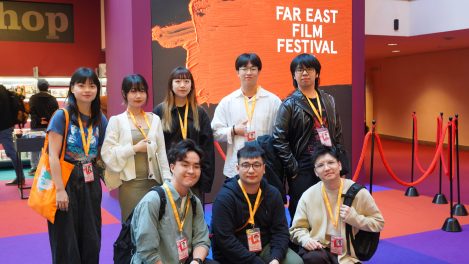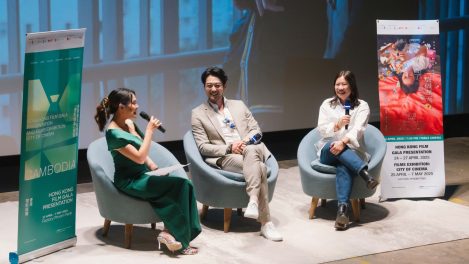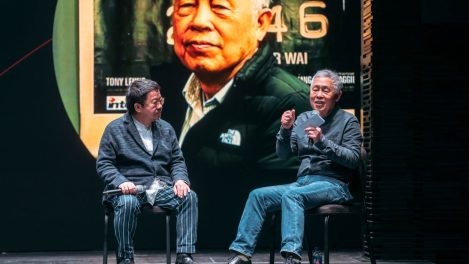Hong Kong Filmmakers Connect with Singapore Audiences Through Behind-the-Scenes Insights
Hong Kong filmmakers attended the post-screening Q&As in Singapore to share exclusive insights into their creative journeys and unveil untold behind-the-scenes stories.The grand finale of the “Hong Kong Film Gala Presentation 2024” arrived in Singapore, showcasing eight Hong Kong films over five days from November 20 to 24 at GV Suntec City. Directors Anselm Chan of “The Last Dance”, Dickson Leung of “YUM Investigation”, and Herbert Leung, along with screenwriter Anastasia Tsang of “Stuntman”, screenings, which attracted a large number of film enthusiasts. They engaged in lively post-screening Q&A sessions, enhancing the audience’s experience and fostering a deeper connection with the films.
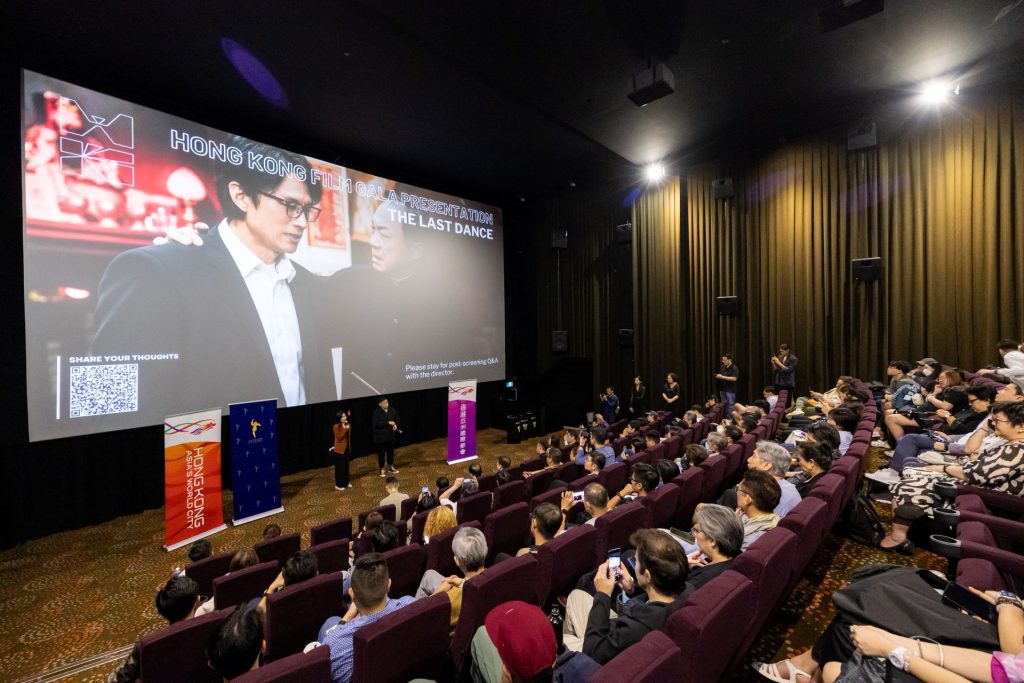
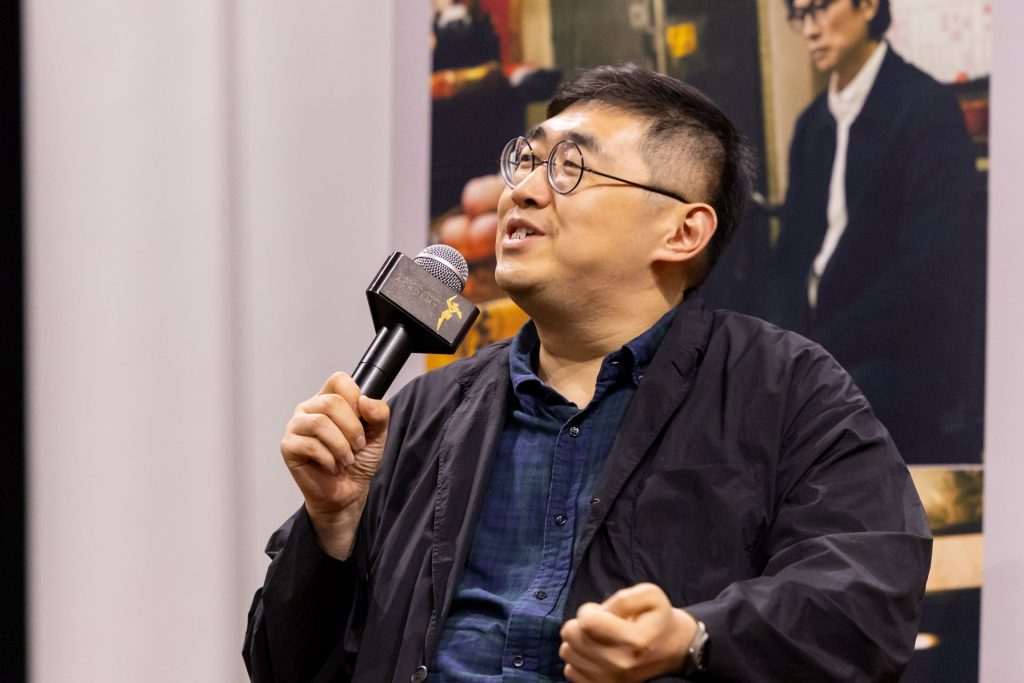
The opening film “The Last Dance” has been the talk of the town. Directed, produced, and written by Anselm Chan, the film is set within Hong Kong’s funeral industry, exploring life, death, and human connections. Anselm shared that during the pandemic, he lost people close to him, which prompted him to reflect on life’s fragility and impermanence. That’s what inspired the idea for his script. He mentioned, “I kept pondering about the meaning of life at that time. Just as the line delivered in the movie, our lives started counting down from the moment we were born. Yet, our emotions and connections continue to grow every day. In the end, we can’t help but face the reality of separation.” Anselm hopes to inspire audiences to reflect on the meaning of life and feel a sense of inevitability.
The “Breaking Hell” ritual shown in the film is a traditional funeral custom in Hong Kong and an intangible cultural heritage. Anselm described this ritual as “the final dance of one’s life”, emphasising that international audiences can easily understand the meaning of this tradition as well as the central idea of the film. He also discussed the necessity for these customs to adapt to the modern era, highlighting the importance of understanding their deeper meanings rather than maintaining these practices solely to follow tradition.
One of the highlights of the movie is the casting of the lead actors. When Anselm expressed his desire to cast renowned actors Dayo Wong and Michael Hui, his fellow directors were in disbelief and didn’t think it would be possible. Even at his first meeting with Dayo, Dayo confessed, “I have been thinking about how to turn you down on my way here,” as he always insists on reviewing a full script before committing to a role. Yet, after hearing Anselm’s story, Dayo made an exception and agreed to take on the role without a full script, encouraging Anselm to complete the script.
Anselm also revealed to the audience that the version currently screening is actually the 49th edition. They had a long debate about the ending, as the original plot was too heartbreaking, even as expressed by cast members like actress Elaine Jin. In the initial version, Dayo’s character lost his unborn child, as Anselm believed that “one must experience loss to truly cherish what they have”. However, he eventually realized that the child didn’t necessarily have to die. This led to a more hopeful ending in the final version of the film.
The movie initially also featured a side story about Dayo’s character’s family background, focusing on his relationship with his half-brother. That version ended with Dayo’s character delivering a monologue by the seaside: “Life is an unending cycle of sorrow; I don’t want to continue this cycle.” However, audiences weren’t particularly drawn to this plot during the test screenings, that’s why Anselm decided to cut it from the final version. The post screening Q&A unfolded in a casual and humorous tone while sparking deeper reflections on the meaning and challenges of life.
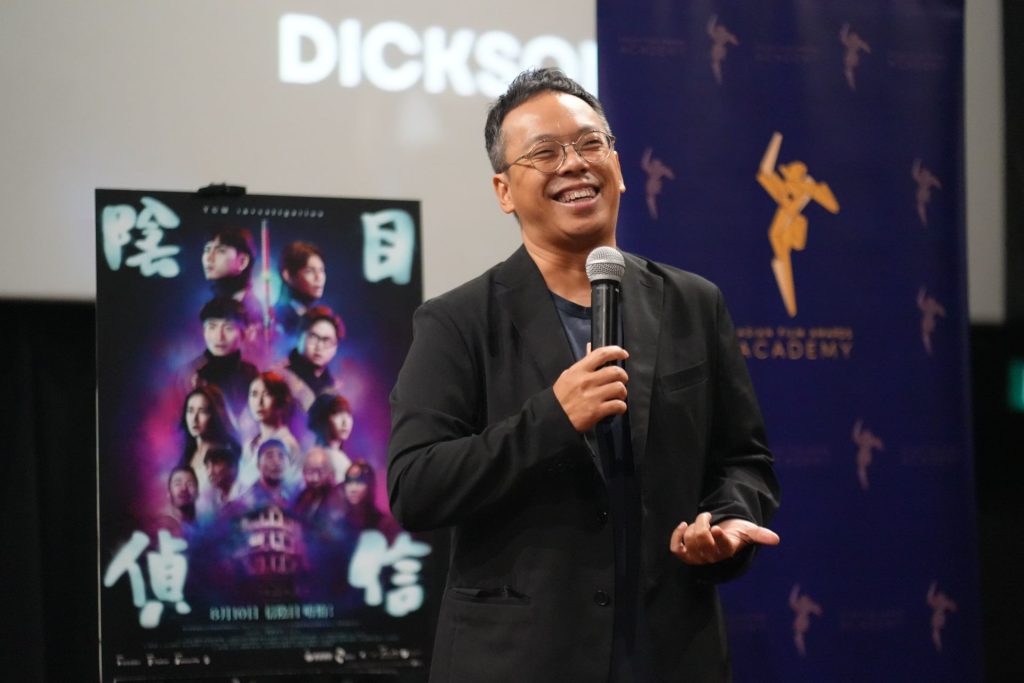

In the post-screening Q&A of “Yum Investigation,” director Dickson Leung shared how he drew inspiration from a local novel, weaving together different stories to build the film’s framework. As a comedy lover, Dickson aimed to infuse humor into his directorial debut, which is why he cast four members of the Hong Kong boy band ERROR to enhance its comedic elements.
The film integrates elements of science fiction, suspense, horror, and fantasy. To adapt a novel into a 90- to 100-minute feature film while incorporating all these elements, Dickson admitted he had to sacrifice certain nuances to maintain narrative flow and effectively convey the core themes. He emphasied that maintaining the story’s pacing is crucial to keeping audiences engaged and helping them grasp the deeper messages. This served as a constant reminder to himself throughout the creative process.
Dickson also discussed the use of colour palettes during both filming and post-production, which enriched the visual experience. He hopes the audience can feel the emotional tension through these visual techniques. This insightful discussion offered a comprehensive glimpse into the making of “Yum Investigation,” enhancing the audience’s overall appreciation of the film.
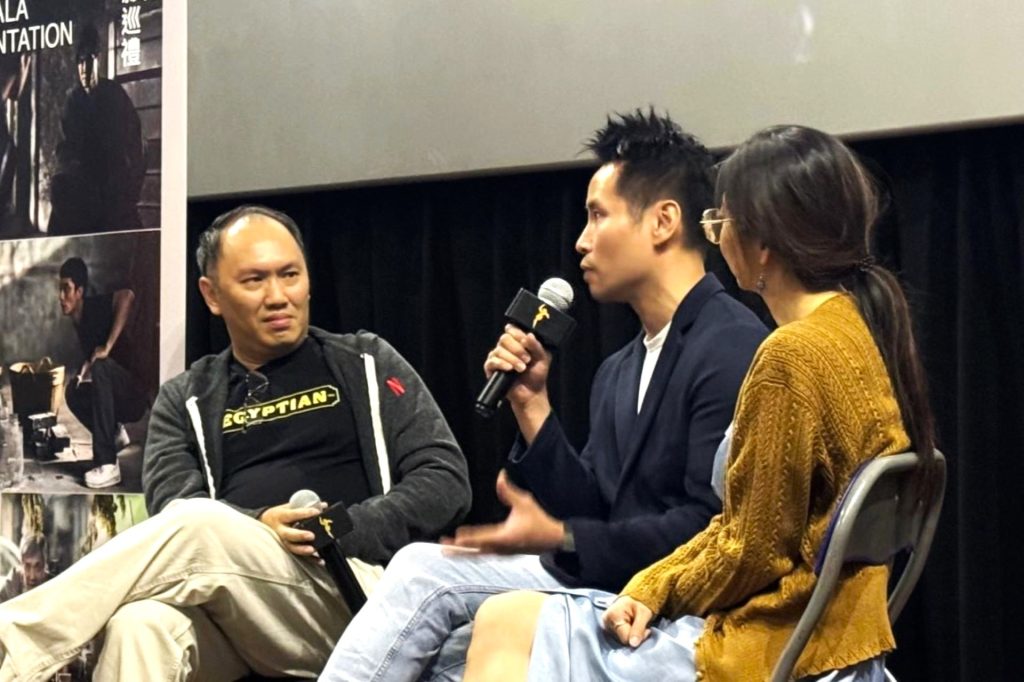
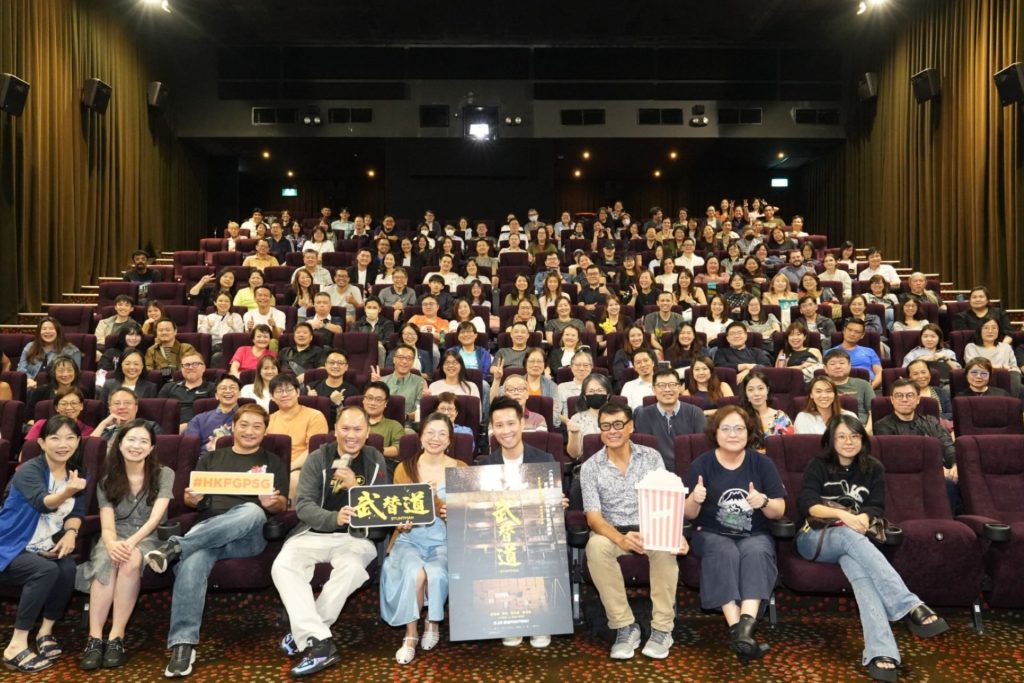
The screening of “Stuntman” was a huge success with a standing ovation from the audience at the end of the film, showing their genuine appreciation for the film. Director Herbert Leung and screenwriter Anastasia Tsang were deeply moved and delighted that the film was well-received by the Singaporean audience. During the Q&A session, they engaged with the audience and shared insights from their creative journey, sparking a lively atmosphere with eager questions. Herbert shared that the inspiration of the film originated in 2006, when he first entered the industry and had the chance to work on Sammo Hung’s “Twins Mission”. Witnessing the decline of Hong Kong’s action film industry during that period, he was inspired to create a film focused on stunt performers, aiming to revive the illustrious legacy of Hong Kong cinema.
In 2013, directors Herbert Leung and his twin brother Albert Leung began drafting the script and later invited screenwriters Anastasia Tsang and Oliver Yip to collaborate. Anastasia shared that the initial script focused on a father-son relationship, however, after extensive discussions, they agreed that a mentor-apprentice relationship would more authentically depict Hong Kong’s stunt performers’ community. In the end, they chose to centre the film around this dynamic.
When asked about character design and casting, Herbert highlighted the inherent tension stunt performers face between prioritising safety and delivering compelling action and he wants to represent this dilemma authentically in the film. “We are glad to work with Stephen Tung Wai, a renowned Hong Kong stuntman who has witnessed the rise of action cinema since the Bruce Lee era. His participation allowed us to craft more nuanced characters and vividly depict the challenges stunt performers encounter.”

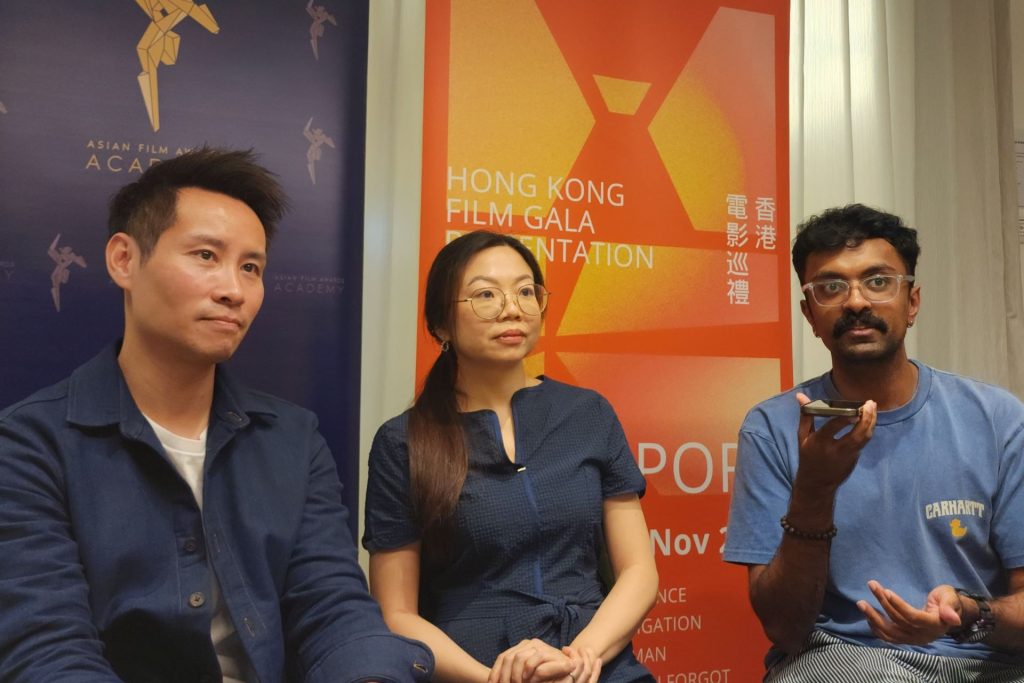
During their visit, the guests were also interviewed by several Singaporean media outlets, including Shin Min Daily News, the Singapore Film Society, L’Officiel Singapore, Zaobao, Radio Television Hong Kong, and Capital 958 Radio Show hosted by DJ Lingzhi. Director Anselm Chan shared a heartfelt story during an interview about the impact of “The Last Dance” on an audience. She had been contemplating ending her life, but after being moved by Dayo’s monologue at the end of the film, she found new purpose of living. She later expressed her gratitude to him, saying the film had saved her life. This experience deeply reminded him of the significant responsibility a director carries and the impact a film can have.
He also praised Michael Hui’s dedication. At the age of 82, he performed demanding stunts in the film. He mastered Nanyin singing, erhu performance, and Taoist ritual movements. Michael even executed fire-breathing and fire-jumping scenes personally, completing them in just two takes without a stunt double, showcasing admirable professionalism. These interviews offered Singaporean audiences a deeper understanding of Hong Kong film production and its profound emotional resonance. They also explored the potential for future collaborations between the Hong Kong and Singapore film industries, further elevating the profile of Hong Kong cinema.
The “Hong Kong Film Gala Presentation,” organised by the Asian Film Awards Academy (AFAA) in collaboration with the Singapore Film Society (SFS), with support from the Cultural and Creative Industries Development Agency (CCIDAHK), Film Development Fund (FDF) and the Hong Kong Economic and Trade Office (HKETO) in Singapore, made a celebrated return to Singapore this year. The event showcased a broader spectrum of Hong Kong cinema, reinforcing ties with film industries across Asia, cultivate closer partnerships, and encourage the sustained growth of the sector. The programme featured screenings of eight Hong Kong films, three post-screening Q&A sessions, and a campus talk, offering local audiences and students an in-depth look into Hong Kong’s cinematic culture and filmmaking process.
Please contact us if any questions,
Email: info@afa-academy.com
Tel: +852 3195 0609
Website: www.afa-academy.com

